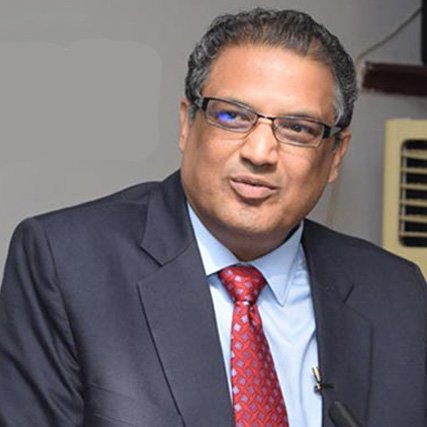Every letter of the alphabet has its own significance and meaning. The letter Alif dominates the entire universe — “Only one Alif is needed at Your door.” But in Tazadistan (Land of Contradictions), right now it’s ‘Ain’ versus ‘Ain’ — ‘Ain’ on this side and ‘Ain’ on that. In fact, not just one ‘Ain’ per side — there are two on each.
If the power of the state lies with (General) Asim Munir and the institutions are gripped by (General) Asim Malik, then the reins of the opposition are held by Imran Khan inside jail and Aleema Khan roaring outside. In short, it’s a fight between ‘Ain’ and ‘Ain’ in the center of the battlefield — all four main characters start with the letter ‘Ain’. The next phase will be shaped by this very clash. Whichever ‘Ain’ wins will rule here, and its trumpet will sound across the land.
A few years ago, when B for Bushra Imran’s spiritual charm was in full swing, even senior generals from the establishment would cloak themselves in a spiritual aura and visit Bani Gala, afraid of being struck by a spiritual arrow. In that era, when writing on spiritual matters was considered forbidden or controversial, this timid writer had penned a column on Bushra Imran’s special affinity for the letter ‘Ain’.
At that time, there was a widespread search across Punjab for the only MPA whose name began with ‘Ain’ — and that turned out to be Usman Buzdar, who was then chosen as Chief Minister. Later, Imran Ismail (another ‘Ain’ name) became Governor Sindh. And it was no mere coincidence that Arif Alvi (again, an ‘Ain’) became the President.
But then times changed. Aown Chaudhry, another ‘Ain’, became undesirable. General Bajwa (Qaf letter) was cast out, and in the end, there was no distinction left between ‘Ain’ and ‘Ghain’. Spirituality, numerology, magic spells — nothing worked. Neither did intelligence or strategy.
The method of judging people by photos failed, as did negotiating with generals. When General Asim Munir (an ‘Ain’) became Chief of Army Staff, the political downfall of Imran (another ‘Ain’) and Bushra Bibi (a ‘B’) began — and their political bed remains rolled up to this day, with no signs of unfolding.
Remember the time when Bushra Bibi controlled her husband’s politics? In those days, Aleema Khan (an ‘Ain’) was constantly sidelined. When Bushra and Farah (an ‘F’) reigned supreme during Imran’s government, bribes were the way to secure appointments. In those days, Aleema Khan, Azma Khan, and Noreen Niazi were pushed into the background.
But now, with Imran in jail and Bushra Bibi, after the Islamabad sit-in and long periods of silence and despair, also ending up behind bars — Aleema Khan has risen. She is now the central figure in PTI. Neither Chairman Barrister Gohar nor CM Gandapur hold real importance.
The real authority lies with Aleema Khan. PTI’s social media and its foreign funders take directives from her. This timid writer had written long ago that Bushra Bibi’s leadership wouldn’t last, and now, her place has been taken by Aleema Khan, a near-female clone of Imran Khan.
Still, all strings remain in the captain’s own hands. When he wishes, he can pull Aleema Khan’s string too — just like he did with Bushra Bibi and Gandapur, and reduce her to zero. Imran doesn’t give anyone a free hand.
However, Aleema Khan knows her brother’s psychology better than anyone. She is the only one in the family who played a prominent role in the Shaukat Khanum and Namal University projects.
On the other side of the line, the ‘Ain’ — General Asim Munir — has become the most powerful person in the country. After his military upper hand in the Pakistan-India conflict and a lunch meeting with US President Trump, his position has been solidified further.
The strength and popularity of Field Marshal Asim Munir only further highlight the weakness and dwindling acceptability of the other ‘Ain’ — Imran Khan.
In this ‘Ain’ vs ‘Ain’ battle, Aleema Khan’s ‘Ain’ has shown a confrontational posture rather than one of reconciliation. Only one of her statements hinted at compromise — “Give something, take something.” Otherwise, her every speech has been about breaking jail gates and challenging state laws.
In the ‘Ain’ battle, Noon (Noon) has benefited the most. After coming into government, it has been vocal in expressing loyalty to the army — but on the political ground, it hasn’t made any decisive moves.
The biggest sign of PML-N’s political passivity is its failure to exploit the internal rifts within PTI. In the post-conflict scenario, the psychological shift that occurred should have been turned into political gain, but no steps were taken.
In KP, despite PTI’s internal divisions — and in both the Punjab and National Assembly — not forming a forward bloc shows political negligence. Not a single district-level convention, no new entrants, no celebratory political momentum — it seems like Noon is in a state of paralysis.
In the ‘Ain’ fight, General Asim Munir’s Ain has taken the lead. For now, he faces no major threat, but there are a few ‘Chay’ (چ) challenges he must address before sleeping peacefully.
The first Chay is economic improvement — the recent budget figures have not delivered the optimism suggested by the broader situation.
The second Chay is political instability. As long as Imran Khan (the opposing ‘Ain’) remains in his current status, his popularity won’t decline. Until real, practical steps are taken to reduce his support, Imran Khan will remain a persistent political challenge.
After the war and US visit, a new Chay challenge has emerged — to revive PML-N. If Nawaz Sharif and Shahbaz Sharif don’t take the lead, this cowardly writer fears that a group of General Asim Munir’s strong H (supporters) may become active under a new narrative to counter PTI’s narrative.
This is the first ‘Ain’ battle, and next may come the ‘Noon’ (N) battle. Let’s see what happens.
 Colors
Colors  View Books
View Books 



